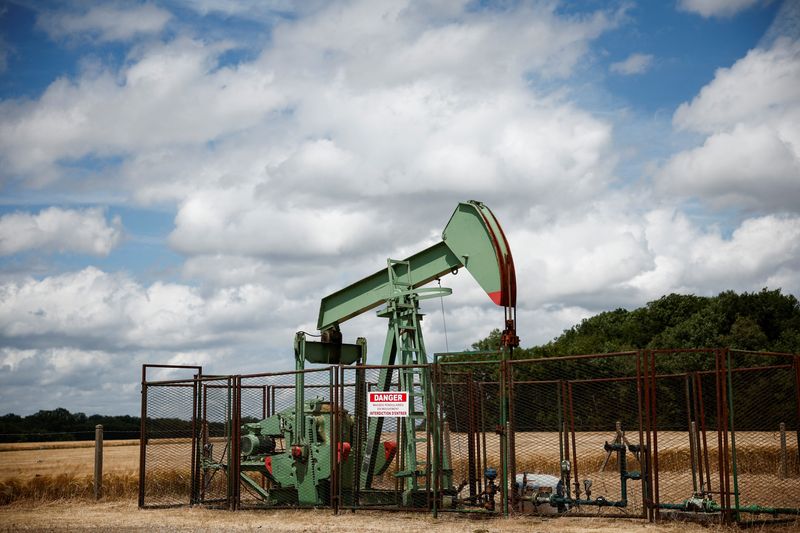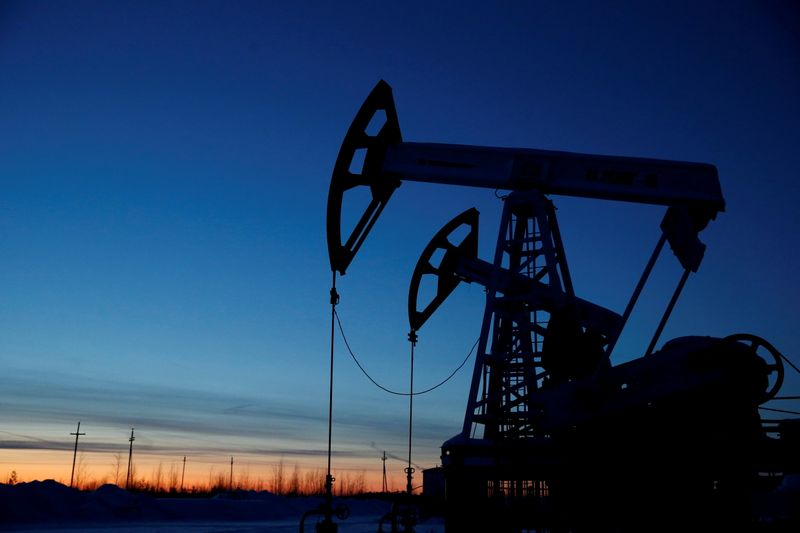By Georgina McCartney
HOUSTON (Reuters) -Oil prices edged higher on Friday and are up 4% this week, as investors took stock of the ongoing conflict in the Middle East and the U.S. election next month.
futures closed down $1.67, or 2.25%, at $76.05 a barrel. U.S. West Texas Intermediate crude rose $1.59, or 2.27%, to $71.78.
Brent settled 4% higher this week, while WTI settled 3.7% higher this week.
“It really looks like the market is bouncing around in a holding pattern until we get answers to some of these questions about Israel, the war and the elections,” said Phil Flynn, senior analyst at Price Futures Group.
“The election is creating uncertainty in many markets and people are pulling their horns a bit, unwilling to make big commitments because of the potential for spikes, volatility and uncertainty,” Flynn added.
Investors worldwide are piling into the US dollar, betting on rising volatility ahead of the next crucial two weeks leading up to the November 5 US elections, as well as elections in Japan, and three major central banks deciding on interest rates and the British government presents its new budget.
Both benchmarks have fluctuated this week, rising on Monday and Tuesday and then falling on Wednesday and Thursday, largely based on expectations of increased or decreased risk to the Middle East.
“Geopolitics is the leading force we see today, otherwise we’ll just wait and see what happens with the (US) election, and what direction that will push the markets,” said Tim Snyder, chief economist at Matador Economics.
An Israeli strike killed three journalists in southern Lebanon on Friday, the Lebanese health ministry said, and the UN refugee agency warned that Israeli airstrikes on a border crossing with Syria were hindering refugees trying to flee the war.
US Secretary of State Antony Blinken said there is a sense of urgency in reaching a diplomatic solution to end the conflict in Lebanon between Israel and Iran-linked Hezbollah, as he called for the protection of civilians.
US and Israeli officials will resume talks on a ceasefire and the release of hostages in Gaza in the coming days.
Investors continue to wait for Israel’s response to an Iranian missile attack on October 1. A response could include attacks on Tehran’s oil infrastructure, although media reports last week said Israel would attack military rather than nuclear or oil targets.
Elsewhere, traders are also seeking more clarity on China’s stimulus policies, although analysts do not expect such measures to provide a major boost to oil demand.

Goldman Sachs on Thursday left its oil price forecasts unchanged at a level between $70 and $85 a barrel for Brent in 2025, expecting the impact of any Chinese stimulus would be modest compared to bigger factors such as oil supplies from the Middle East.
Bank of America forecasts Brent crude to average $75 a barrel by 2025 without a rollback of OPEC+ production cuts into next year, Bank of America said in a note on Friday.


